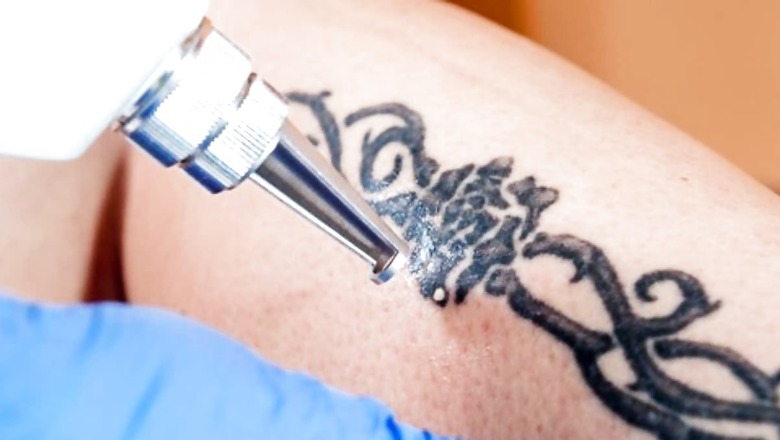
views
Can one get lymphoma from getting tattooed? While a recent study has linked the two, let’s first understand what lymphoma means. It refers to cancer that begins in the lymph system, with two main types — Hodgkin lymphoma and non-Hodgkin lymphoma (NHL). While the former can often be cured, the prognosis for the latter depends on the specific type of disease.
Dr. Satyendra Katewa, Director & Head of Department, Blood & Marrow Transplant, SHALBY Sanar International Hospitals, Gurugram shares all you need to know:
Lymphoma is basically a cancer of the lymphatic system and includes lymph nodes that are spread across the abdomen, groin, pelvis, chest, underarms and neck areas. It also covers the spleen, thymus, tonsils and bone marrow and can end up affecting several organs in the body. Lymphoma occurs when healthy cells in our disease-fighting lymphatic system change and grow out of control.
Coming to tattoos, even though they may be ubiquitous today, the ink is still perceived by our bodies as something foreign that has been injected, which activates the immune system into attack mode to remove it, leading to certain amounts being deposited in the lymph nodes.
So, does this prove a connection between tattoos and the occurrence of lymphoma? Research on the subject is limited, but a preliminary study that compared 737 people with non-Hodgkin’s lymphoma with a control group of similar profiles but without lymphoma, found no real difference in the frequency of tattoos between them.
We could leave it that, except that a larger population-based “case-control” study published inMay 2024 in The Lancet, conducted by the Swedish Research Council for Health, Working Life and Welfare, compared 1,398 people ages 20 to 60 who had lymphoma with 4,193 people who did not have the disease. It attempted to explore whether having tattoos increased the risk of malignant lymphoma, a rare cancer that affects the white blood cells (lymphocytes).
The participants were asked to answer questions around several lifestyle factors, and those who were tattooed were asked about the surface area it covered, the age when they got their first tattoo, colours used, etc. It came up with some interesting findings. For one, it found that lymphoma was 21% more common among those sporting tattoos, though it did not discover any connection between the size or number of tattoos and lymphoma.
Interestingly, the risk of lymphoma was also dependent on the duration of time since getting the tattoo. For instance:
It also pointed out that tattoo ink often contains carcinogenic chemicals, such as “primary aromatic amines, polycyclic aromatic hydrocarbons, and metals”. It stated, “The tattooing process invokes an immunologic response that causes translocation of tattoo ink from the injection site. Deposition of tattoo pigment in lymph nodes has been confirmed but the long-term health effects remain unexplored.”
The report concluded, “Our findings suggested that tattoo exposure was associated with an increased risk of malignant lymphoma. More epidemiologic research is urgently needed to establish causality.”
Symptoms of lymphoma
Lumps, which may be swollen lymph nodes, are a common sign of the blood cancer. One may also experience swelling in the belly, neck, collarbone, groin or any other part of the body. While these are largely painless, some swellings can press on an organ, thus causing chest pain, stomach ache or coughing and breathlessness: Fever, unexplained and sudden weight loss, night sweats, fatigue and itchy skin are some other symptoms.
Tests to pinpoint the incidence of lymphoma include blood tests, biopsies, scans, and general health screening. While slow-growing cases may not call for aggressive treatment immediately, the protocol usually includes chemotherapy, radiotherapy and targeted therapies. The line of treatment depends on the type of lymphoma and how far it has spread.
A weakened immune system is the biggest threat to your health. This could be as a side-effect of certain medications or due to an infection—with or without a tattoo. Thus, the key is to be alert to any signs.
While the results of the study exploring the connection between tattoos and lymphoma may not be conclusive, it is still good to be aware of the health risks. In case of any symptoms, one must immediately contact a medical expert to rule out a case of lymphoma or catch it early to increase chances of a full recovery.

















Comments
0 comment